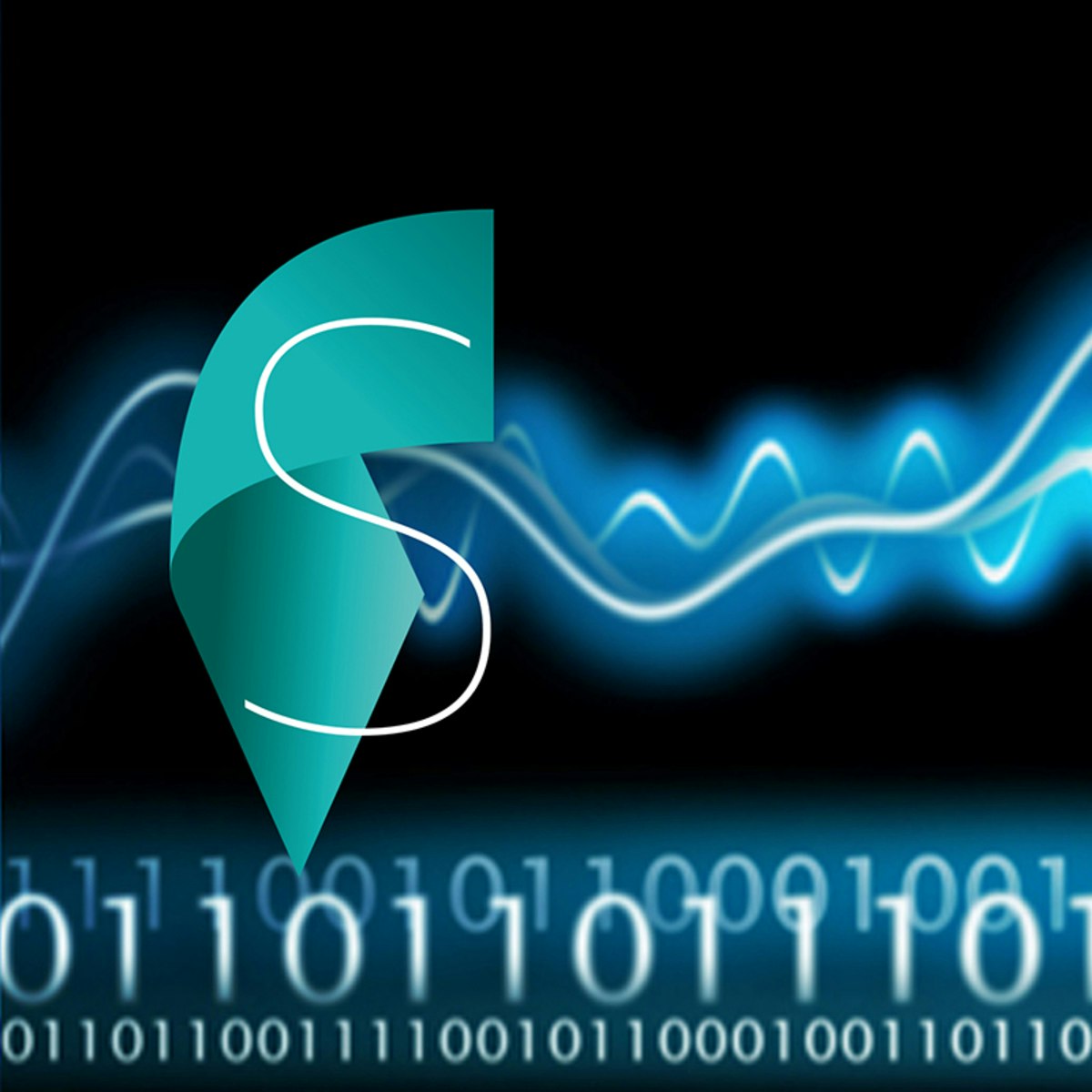Speech Scientist
Speech Scientist
Speech science is a fascinating and complex field dedicated to understanding how humans produce, perceive, and process speech. It sits at the intersection of several disciplines, including linguistics, psychology, computer science, engineering, and neuroscience. At its core, speech science investigates the physical and biological underpinnings of spoken communication, exploring everything from the movements of our vocal cords to how our brains interpret sound waves.
Working as a speech scientist can be incredibly engaging. You might find yourself developing cutting-edge voice recognition technology that powers virtual assistants like Siri or Alexa. Alternatively, you could be in a lab analyzing acoustic signals to better diagnose speech disorders or working alongside clinicians to improve therapies. The field is constantly evolving, particularly with advancements in artificial intelligence, offering exciting opportunities to contribute to both scientific knowledge and practical applications that impact communication.
Introduction to Speech Science
What is Speech Science?
Speech science is the interdisciplinary study focused on how speech is produced, transmitted physically as sound waves, and perceived by listeners. It delves into the anatomy and physiology of the body systems involved in creating and hearing sound, such as the lungs, larynx (voice box), vocal tract, and ears. Beyond the physical aspects, it also considers the psychological elements of communication, including sensation, perception, and cognition related to speech.
Historically rooted in phonetics—the branch of linguistics concerned with speech sounds—speech science has expanded significantly. Early work in the 19th century, such as that by Paul Broca and Carl Wernicke, laid foundations by linking specific brain areas to speech production and comprehension. Later developments, like Alexander Melville Bell's "visible speech" system, focused on representing speech sounds based on articulation.
Today, speech science integrates knowledge from diverse fields. Professionals may come from backgrounds in speech-language pathology, audiology, linguistics, psychology, cognitive science, computer science, physiology, or neuroscience. This diverse expertise contributes to a comprehensive understanding of spoken communication in all its complexity.
Core Goals of Speech Scientists
The primary goals of speech scientists revolve around understanding the entire "speech chain"—the process from a speaker's intention to a listener's understanding. This involves studying how thoughts are converted into linguistic code, how muscles execute commands to produce sounds (articulation), and how these sounds travel as acoustic signals. It also includes investigating how the ear processes these signals and how the brain interprets them as meaningful language.
A major objective is to understand both typical speech processes and disordered communication. Scientists analyze acoustic properties like waveforms and spectrograms, or use physiological measures like ultrasound or MRI, to study speech production in detail. This research helps in understanding conditions that affect intelligibility, fluency (like stuttering), voice quality, or the neurological control of speech.
Furthermore, speech scientists aim to apply their knowledge to develop technologies and therapies. This includes creating more accurate speech recognition systems, designing better hearing aids or cochlear implants, and informing evidence-based treatments used by speech-language pathologists. Understanding speech perception helps in addressing the impact of hearing loss or other listener-related factors.
A Brief Historical Perspective
The formal study of speech as a science began to take shape in the 19th century, driven by medical observations and early phonetic studies. Early pioneers like Paul Broca and Carl Wernicke identified specific brain regions crucial for language, establishing the field of neurobiology of language. Their work, initially based on post-mortem studies of brain-damaged individuals, suggested that language functions were localized in the brain, primarily the left hemisphere.
The late 19th and early 20th centuries saw significant advancements influenced by the scientific revolution and the rise of disciplines like experimental psychology and phonetics. Figures like Alexander Melville Bell contributed detailed systems for describing speech sounds based on their articulation ("visible speech"). This period also saw the emergence of "speech correctionists," predecessors to modern speech-language pathologists, who began forming professional organizations like the American Academy of Speech Correction in 1925 (which later became ASHA).
Technological advancements, particularly in the 20th century, revolutionized the field. Tools for acoustic analysis, physiological measurement (like spirometry or electropalatography), and brain imaging (like MRI) allowed for more precise investigation of speech processes. The advent of computers spurred the growth of computational linguistics and the development of speech technology, dramatically expanding the scope and application of speech science.
Key Responsibilities of a Speech Scientist
Research vs. Applied Roles
Speech scientists work in diverse settings, broadly categorized into research and applied roles. Research positions are often found in academia (universities) and specialized research institutes. These scientists focus on fundamental questions about speech production, perception, acoustics, and disorders. Their work involves designing experiments, collecting and analyzing data (acoustic, physiological, perceptual), and publishing findings to advance the field's knowledge base.
Applied roles are common in technology companies, healthcare settings, and government agencies. In the tech industry, speech scientists contribute to developing and improving technologies like voice assistants (e.g., Siri, Alexa), speech recognition software, text-to-speech systems, and translation tools. Their responsibilities might involve algorithm development, machine learning model training, performance analysis, and optimization of voice user interfaces.
In healthcare, applied speech scientists might collaborate with clinicians (speech-language pathologists, audiologists) to develop evidence-based assessment tools or intervention strategies. They might work in hospitals or rehabilitation centers, focusing on translating research findings into practical clinical applications to help individuals with communication or swallowing disorders. Some may also work in industry developing medical devices related to speech and hearing.
Typical Day-to-Day Tasks
The daily tasks of a speech scientist vary significantly based on their specific role and setting. A researcher in academia might spend their day designing studies, running experiments using specialized equipment (like spectrograms, ultrasound, or eye-trackers), analyzing complex datasets using statistical software or programming languages, writing grant proposals, mentoring students, and preparing manuscripts for publication.
An applied scientist in the tech industry could be involved in developing machine learning models for speech recognition or synthesis. This might involve data preprocessing, feature extraction (analyzing acoustic signals), training neural networks, evaluating model performance on large datasets, and deploying models into production systems. They often work with software like Python, MATLAB, or specialized toolkits like Kaldi or PyTorch.
A speech scientist in a clinical or healthcare-related setting might focus on developing or validating assessment protocols, analyzing clinical data to understand disorder patterns, or collaborating on the design of therapeutic tools or devices. This could involve using acoustic analysis software to measure voice parameters, analyzing recordings of patient speech, or reviewing literature to inform evidence-based practice guidelines.
Collaboration is Key
Speech science is inherently interdisciplinary, making collaboration essential. Researchers frequently work with colleagues from different backgrounds—linguists provide insights into language structure, psychologists contribute understanding of perception and cognition, and engineers offer expertise in signal processing and hardware.
In applied settings, collaboration is equally crucial. Tech-focused speech scientists work closely with software engineers to implement algorithms, product managers to define requirements, and user experience (UX) designers to create intuitive voice interfaces. They rely on data scientists for handling large datasets and machine learning engineers for optimizing models.
In healthcare, speech scientists collaborate with clinicians like speech-language pathologists, audiologists, neurologists, otolaryngologists (ENT doctors), and dentists. This teamwork ensures that research is clinically relevant and that new diagnostic or therapeutic approaches are effectively integrated into patient care. This cross-pollination of ideas and expertise drives innovation across the field.
Technical Skills for Speech Scientists
Signal Processing and Acoustic Analysis
A fundamental skill for many speech scientists is proficiency in digital signal processing (DSP). This involves understanding how to represent, analyze, and manipulate speech signals, which are essentially complex sound waves recorded over time. Key concepts include Fourier analysis (to break down signals into constituent frequencies), filtering (to isolate or remove specific frequency components), and feature extraction (identifying relevant acoustic characteristics).
Speech scientists use various tools and techniques for acoustic analysis. Spectrograms are visual representations of how the frequency content of speech changes over time, crucial for analyzing vowels and consonants. Other common analyses include measuring fundamental frequency (pitch), intensity (loudness), formants (resonant frequencies of the vocal tract), and timing aspects of speech.
Familiarity with specialized software for acoustic analysis, such as Praat, is common, alongside programming libraries for DSP in languages like Python or MATLAB. These skills are vital for research involving speech production/perception and for developing algorithms in speech technology applications like enhancement or recognition.
These courses provide a solid introduction to the principles of Digital Signal Processing, a cornerstone of speech science.
This book offers a comprehensive look at signal processing specifically applied to speech.
Programming Languages
Programming skills are increasingly essential for speech scientists, particularly in research and technology roles. Python has become a dominant language due to its extensive libraries for data analysis (NumPy, SciPy, Pandas), machine learning (Scikit-learn, PyTorch, TensorFlow), and audio processing (Librosa).
MATLAB is another popular choice, especially in academic research and engineering contexts, known for its strong capabilities in signal processing and matrix computations. Depending on the specific application, knowledge of other languages like C++ (for performance-critical real-time systems) or scripting languages like Shell for managing large datasets and experiments might also be necessary.
Proficiency involves not just writing code but also understanding algorithms, data structures, and software development practices like version control (Git). These skills enable scientists to implement custom analyses, build computational models, automate tasks, and contribute to software development projects.
This book is a classic resource for learning Python in the context of language processing.
Machine Learning Expertise
Machine learning (ML) has revolutionized speech science, particularly in areas like automatic speech recognition (ASR), speech synthesis (text-to-speech), speaker identification, and speech enhancement. Speech scientists often need a solid understanding of core ML concepts, including supervised learning (classification, regression), unsupervised learning (clustering), and deep learning.
Deep learning models, such as Recurrent Neural Networks (RNNs), Convolutional Neural Networks (CNNs), and especially Transformer architectures, are central to state-of-the-art speech technology. Familiarity with training these models, understanding architectures like sequence-to-sequence models, attention mechanisms, and frameworks like PyTorch or TensorFlow is highly valuable.
Beyond model architectures, knowledge of evaluation metrics, data augmentation techniques specific to audio, and methods for handling large datasets is crucial. This expertise allows scientists to build sophisticated models that can learn complex patterns in speech data.
These courses delve into Natural Language Processing (NLP) and deep learning techniques commonly used in speech science.
These books cover statistical methods and NLP techniques relevant to speech processing.
Speech Databases and Annotation
Research and development in speech science heavily rely on large collections of speech data, known as corpora or databases. Speech scientists need familiarity with common publicly available corpora (like TIMIT, LibriSpeech, Switchboard) and potentially proprietary datasets used within organizations.
Working with these databases often requires skills in data management and processing. This includes understanding different audio file formats, sampling rates, and encoding methods. It also involves knowing how to handle metadata associated with speech recordings, such as speaker demographics or recording conditions.
Annotation is another critical aspect. This involves labeling speech data with relevant information, such as phonetic transcriptions (what sounds were said), orthographic transcriptions (what words were said), speaker identity (who spoke when), or timestamps for specific events. Familiarity with annotation tools (like ELAN or Audacity's labeling features) and annotation standards is important for creating and utilizing labeled datasets for training and evaluation.
This course touches upon analyzing linguistic features in large datasets.
Formal Education Pathways
Relevant Bachelor's Degrees
A bachelor's degree is the typical starting point for a career in speech science. There isn't one single required major, reflecting the field's interdisciplinary nature. Common undergraduate degrees include Communication Sciences and Disorders (CSD), Linguistics, Psychology, Computer Science, Electrical Engineering, or Biomedical Engineering.
A CSD major provides a strong foundation in normal speech/language development, anatomy/physiology of speech mechanisms, phonetics, acoustics, and an introduction to communication disorders. Linguistics offers deep insights into language structure, phonetics, phonology, syntax, and semantics. Psychology programs often cover cognitive science, perception, and research methods relevant to speech perception and processing.
Degrees in Computer Science or Engineering provide crucial quantitative and computational skills, including programming, algorithms, signal processing, and mathematics (calculus, linear algebra, statistics). These are particularly beneficial for those aiming for technology-focused roles. Regardless of the major, coursework in mathematics, statistics, and basic sciences is generally advantageous.
You can explore relevant undergraduate programs and prerequisites using resources like ASHA's EdFind for CSD programs or university websites for other disciplines.
Graduate Programs in Speech Science
For most research and advanced applied roles, a graduate degree (Master's or PhD) is necessary. Master's programs specifically in Speech Science or Speech & Hearing Science delve deeper into acoustics, speech perception, speech production, signal processing, and research methods. These programs often have a strong research component, sometimes requiring a thesis.
Alternatively, many speech scientists hold graduate degrees in related fields like Computer Science (specializing in Artificial Intelligence, Machine Learning, or Natural Language Processing), Linguistics (focusing on phonetics, phonology, or computational linguistics), Psychology (specializing in cognitive science or perception), or Engineering (specializing in signal processing or acoustics).
Master's programs in Speech-Language Pathology (MS-SLP) are primarily clinical degrees preparing students for practice, but some graduates transition into research or industry roles, especially if they develop strong technical skills or pursue further research training. Some universities offer combined MS/PhD tracks for students committed to a research career early on.
This program offers advanced study combining linguistics and computer science for speech processing.
record:20
This comprehensive text covers the breadth of speech and language processing, suitable for graduate studies.
Doctoral (PhD) Research
A Doctor of Philosophy (PhD) is typically required for independent research positions in academia and many senior scientist roles in industry. PhD programs in Speech and Hearing Science (or related fields like Computer Science, Linguistics, etc.) involve advanced coursework, comprehensive qualifying exams, and, most importantly, original dissertation research.
PhD study usually takes 4-6 years beyond a bachelor's degree (or potentially less if entering with a relevant Master's). Students work closely with a faculty advisor to specialize in a specific area, such as acoustic phonetics, speech perception mechanisms, computational modeling of speech, speech synthesis technology, or the study of specific speech disorders.
The dissertation involves conducting significant original research, analyzing data, and writing a substantial scholarly work that contributes new knowledge to the field. PhD training also emphasizes developing skills in critical thinking, experimental design, data analysis, scientific writing, and often teaching or mentoring.
record:43
Online and Independent Learning
Core Topics for Self-Study
For those transitioning into speech science or supplementing formal education, self-study, often facilitated by online resources, can be highly effective. Key foundational topics include Phonetics (the study of speech sounds), Acoustics (the physics of sound), Anatomy and Physiology of Speech Production, and Speech Perception.
Computational aspects are also critical. Foundational knowledge in programming (especially Python), Linear Algebra, Calculus, and Statistics is essential. More advanced topics include Digital Signal Processing, Machine Learning fundamentals, and specific areas of Natural Language Processing (NLP) relevant to speech, such as sequence modeling and deep learning architectures (RNNs, CNNs, Transformers).
Online courses offer structured ways to learn these subjects. Many universities and platforms provide courses ranging from introductory phonetics to advanced machine learning for speech processing. Supplementing courses with textbooks and research papers is also crucial for deeper understanding.
These online courses cover foundational and advanced topics in NLP and machine learning relevant to speech science.
This book provides a practical introduction to audio processing, a key area in speech science.
Project-Based Learning Strategies
Applying knowledge through projects is invaluable for solidifying skills. For computationally-focused learners, projects could involve building simple speech analysis tools (e.g., a pitch tracker), implementing basic speech recognition systems (e.g., digit recognition), or experimenting with text-to-speech synthesis models.
Using accessible toolkits like Kaldi, ESPNet, NeMo, or libraries like Librosa (for audio analysis) and PyTorch/TensorFlow (for ML) can facilitate these projects. Participating in online competitions (like those on Kaggle related to audio or NLP) or contributing to open-source speech projects are excellent ways to gain practical experience and build a portfolio.
For those more interested in the linguistic or clinical aspects, projects might involve analyzing speech corpora to study specific phonetic phenomena, conducting perceptual experiments using online platforms, or creating annotated datasets. The key is to choose projects that align with your interests and learning goals, starting simple and gradually increasing complexity.
Integrating Online Learning with Formal Education
Online learning can effectively supplement traditional degree programs. University students can use online courses to deepen their understanding of specific topics not covered in depth in their curriculum, learn cutting-edge techniques (especially in fast-moving areas like deep learning), or acquire practical skills like programming or using specific software tools.
For professionals considering a pivot into speech science, online courses and resources provide a pathway to acquire foundational knowledge and technical skills before potentially committing to a graduate program. They allow learners to explore different facets of the field and determine areas of interest. Platforms like OpenCourser make it easy to find and compare courses across various providers.
Moreover, online learning offers flexibility, allowing individuals to learn at their own pace alongside work or other commitments. Building a portfolio of completed online courses and projects can strengthen applications for graduate school or entry-level positions. Learners can use features like OpenCourser's "Save to List" (manage lists here) to organize their learning path.
Career Progression for Speech Scientists
Entry-Level Opportunities
With a bachelor's degree in a relevant field and perhaps some research or project experience, individuals might find entry-level roles such as research assistant, lab technician, data annotator, or junior data analyst, particularly in academic labs or larger companies with speech technology teams.
A Master's degree typically opens doors to roles like Applied Scientist, Research Engineer, or Speech Scientist I in industry, or more advanced research support roles in academia. These positions often involve contributing to specific projects under supervision, implementing existing algorithms, running experiments, analyzing data, and developing specific components of larger systems.
For those with a clinical background (e.g., an MS-SLP), entry-level might involve clinical practice, but some may transition into research-focused roles or industry positions requiring clinical domain expertise, potentially after gaining additional technical skills.
Mid-Career Transitions and Growth
After gaining several years of experience, speech scientists often progress to more senior roles. This might involve leading smaller projects, mentoring junior team members, taking ownership of specific feature development or research areas, and contributing more significantly to technical direction or research strategy.
Mid-career titles can include Senior Speech Scientist, Lead Researcher, or specialized roles like Speech Recognition Engineer or Machine Learning Scientist focused on speech applications. At this stage, scientists often develop deeper expertise in a particular subfield (e.g., speech enhancement, large language model integration for speech, specific clinical populations).
Some may transition towards management (e.g., Research Manager, Team Lead), while others pursue a technical expert track (e.g., Principal Scientist), focusing on high-level technical contributions and innovation. Continuous learning, staying updated with research advancements, and potentially pursuing a PhD can facilitate mid-career growth.
Leadership and Senior Roles
Senior leadership roles, often requiring a PhD and significant experience, involve setting research agendas, managing large teams or departments, defining long-term technical strategy, and representing the organization externally (e.g., at conferences, in publications).
Titles can include Principal Scientist, Research Director, Senior Manager, or VP of Research/Engineering in industry. In academia, senior roles include tenured Professor positions, involving leading independent research labs, securing major funding, teaching advanced courses, and contributing to university administration.
These roles demand not only deep technical expertise but also strong leadership, communication, strategic thinking, and mentorship skills. Progression often involves a proven track record of impactful research, successful project delivery, and contributions to the field. Many individuals plateau at senior scientist or director levels, with fewer reaching executive VP or C-suite positions.
Ethical Considerations in Speech Science
Bias in Speech Recognition Systems
A significant ethical challenge is bias in automatic speech recognition (ASR) systems. Models trained predominantly on data from specific demographic groups (e.g., speakers of standard dialects, particular genders, or age groups) often exhibit higher error rates for underrepresented groups. This can lead to disparities in access and performance for users with different accents, dialects, or speech patterns.
This bias can perpetuate social inequalities, making technology less usable or effective for certain populations. Addressing this requires conscious efforts in data collection to ensure diversity, developing bias mitigation techniques during model training, and rigorous testing across diverse user groups. Transparency about system limitations and performance variations is also crucial.
Speech scientists have a responsibility to be aware of potential biases and actively work towards creating fairer and more equitable speech technologies. This involves considering the societal impact of their work beyond purely technical performance metrics.
Privacy Concerns with Voice Data
Speech technology inherently involves collecting and processing voice data, which is highly personal. Voice recordings can contain sensitive information, reveal emotional states, and even serve as biometric identifiers ("voiceprints"). This raises significant privacy concerns regarding how this data is collected, stored, used, and protected.
Ethical considerations include obtaining informed consent from users, being transparent about data collection practices, minimizing data retention, and implementing robust security measures to prevent unauthorized access or breaches. The constant listening capability of voice assistants ("wake word" detection) also poses risks of unintentional capture of private conversations.
Navigating regulations like GDPR (General Data Protection Regulation) in Europe is essential. Speech scientists, particularly those involved in data collection or system deployment, must prioritize user privacy and build systems that users can trust with their sensitive voice data.
Clinical Ethics in Practice
For speech scientists working in or collaborating with clinical settings (e.g., developing diagnostic tools or therapies for speech disorders), additional ethical considerations apply. These align with broader principles of biomedical ethics, including ensuring patient confidentiality, obtaining informed consent for research participation or use of clinical data, and ensuring that interventions are evidence-based and provide genuine benefit.
Accuracy in diagnosis and assessment is paramount, as errors can lead to inappropriate treatment or missed opportunities for intervention. When developing clinical tools, scientists must rigorously validate their performance and clearly communicate their limitations to clinicians.
Furthermore, ensuring equitable access to effective assessment and treatment technologies is an ethical imperative. Scientists should consider how their work might impact different socioeconomic groups or individuals in diverse geographic locations, striving to develop solutions that are accessible and beneficial to all who need them.
Global Demand for Speech Scientists
Key Hiring Industries
The demand for speech scientists is driven primarily by the technology sector, healthcare, and academia. Large tech companies (like Google, Amazon, Microsoft, Apple, Meta) heavily invest in speech recognition, natural language processing, and voice assistant technologies, requiring numerous speech scientists for research and development.
The healthcare industry employs speech scientists in research related to communication disorders, developing diagnostic tools, and improving assistive technologies. Hospitals, rehabilitation centers, and companies developing medical devices or hearing aids also seek their expertise. Academia remains a significant employer, with universities needing faculty to conduct research and train the next generation of scientists and clinicians.
Other industries utilizing speech technology, such as automotive (in-car voice controls), finance (voice biometrics, customer service automation), and education (language learning tools, accessibility features), also contribute to the demand. The growing integration of voice interfaces across various products and services fuels this need.
Employment Hotspots and Remote Work
Historically, job opportunities for speech scientists, particularly in tech, have been concentrated in major technology hubs like Silicon Valley, Seattle, Boston, and other regions with strong research universities and tech industries. However, the rise of remote work has broadened geographic possibilities.
Many tech companies now offer remote or hybrid positions, allowing scientists to work from various locations. Academic positions are tied to university locations globally. Healthcare-related research roles might be clustered around major medical centers or universities with strong CSD programs.
While certain regions remain hotspots, the increasing acceptance of remote work provides greater flexibility for speech scientists in choosing where they live and work, although roles requiring specialized lab equipment may still necessitate on-site presence.
Impact of AI Advancements
Artificial intelligence, especially deep learning and large language models (LLMs), is profoundly impacting the field and the job market. AI advancements have dramatically improved the performance of speech recognition and synthesis systems, driving wider adoption and creating demand for scientists skilled in these modern techniques.
While AI automates some tasks previously done manually (e.g., certain types of data annotation), it also creates new roles focused on developing, training, evaluating, and ethically deploying these complex AI models. There's a growing need for scientists who understand both speech science fundamentals and state-of-the-art AI/ML techniques.
The overall impact appears to be a net positive for job growth, shifting the required skill set towards more computational and AI-focused expertise. According to some analyses, like those discussed by the World Economic Forum, AI is expected to transform many jobs but also create new ones, particularly in tech-related fields. However, concerns remain about potential job displacement in specific areas and the need for workforce adaptation.
Frequently Asked Questions (Career-Focused)
Is a PhD mandatory for industry roles?
While a PhD is often preferred or required for research-focused or senior scientist roles in industry, it's not always mandatory for all positions. Many applied scientist or engineer roles, particularly those focused on implementation, testing, or data analysis, may be accessible with a relevant Master's degree and strong technical skills.
Companies often look for practical experience, proficiency in programming and machine learning frameworks, and a solid understanding of speech processing fundamentals. A Master's degree combined with relevant internships, project work, or prior industry experience can be sufficient for many industry roles, especially at entry or mid-levels.
However, for roles involving independent research, defining long-term research directions, or leading research teams, a PhD is generally expected as it demonstrates advanced research training and the ability to conduct original, high-level scientific work.
How competitive are speech scientist positions?
The competitiveness of speech scientist positions varies depending on the role, sector, and required qualifications. Roles at top tech companies or prestigious academic institutions tend to be highly competitive, often attracting applicants globally.
Positions requiring specialized skills, particularly at the intersection of speech science and cutting-edge AI/ML, are in demand but also require a high level of expertise. Entry-level positions may face competition from graduates of various related disciplines (CS, Linguistics, Engineering, CSD).
Overall, the field is growing due to the expansion of speech technology applications, suggesting good job prospects for those with the right qualifications. However, securing top-tier positions requires a strong academic background, relevant technical skills, research or project experience, and often, advanced degrees.
Can linguists transition into speech science without an engineering background?
Yes, individuals with a strong background in linguistics, particularly phonetics, phonology, or computational linguistics, can transition into speech science. Many speech scientists have linguistics degrees. However, acquiring technical skills is often necessary, especially for roles in speech technology or computational research.
This typically involves learning programming (Python is common), statistics, and fundamentals of signal processing and machine learning. Online courses, bootcamps, or pursuing a Master's degree that bridges linguistics and computational methods (like Computational Linguistics or a specialized Speech Science program) can facilitate this transition.
A linguistics background provides valuable insights into language structure and sound patterns that engineers might lack. Combining this domain knowledge with technical proficiency can create a unique and valuable skill set for roles involving natural language processing, speech analysis, or designing language-aware systems.
This book provides a foundational understanding of speech and language processing, beneficial for linguists transitioning into the field.
What industries hire speech scientists?
The primary industries hiring speech scientists are Technology (major tech companies developing AI, voice assistants, search engines, communication platforms), Healthcare (hospitals, research institutes, medical device companies, hearing aid manufacturers), and Academia (universities and research labs).
Other significant sectors include Automotive (developing in-car voice systems), Finance (voice biometrics, automated customer service), Entertainment (speech synthesis for games/films, audio processing), Telecommunications, and Government/Defense (speech analysis, surveillance).
Essentially, any industry looking to incorporate voice interaction, analyze speech data, or develop technologies related to human communication may hire speech scientists. The breadth of applications for speech technology continues to expand.
Are certifications valuable for career advancement?
Unlike fields like speech-language pathology which require clinical certification (like ASHA's CCC-SLP), there isn't a standard, universally required certification specifically for "Speech Scientist" roles, especially in research or tech.
However, certifications related to specific technical skills or platforms can be valuable, particularly for demonstrating proficiency in areas like machine learning, cloud computing (AWS, Azure, GCP), or specific programming languages. These can supplement formal education and practical experience.
For those bridging clinical work and research/industry, maintaining clinical certification (if applicable) can be advantageous. Ultimately, demonstrated skills, research output (publications), project portfolios, and advanced degrees often carry more weight than general certifications in this field.
How does speech science differ from computational linguistics or speech-language pathology?
Speech Science is the broad study of speech production, acoustics, and perception. It provides the foundational knowledge for the other two fields.
Computational Linguistics (CL) focuses specifically on using computational methods to model and process human language (both spoken and written). It heavily overlaps with speech science in areas like speech recognition and synthesis but also includes text-based NLP tasks like translation and sentiment analysis. CL is more focused on the computational modeling aspect.
Speech-Language Pathology (SLP) is a clinical profession focused on diagnosing and treating communication and swallowing disorders. While SLPs rely heavily on knowledge from speech science (e.g., understanding normal vs. disordered speech production), their primary focus is clinical application and patient care, rather than fundamental research or technology development (though some SLPs do engage in clinical research).
This book is a key text differentiating the fields and covering their intersections.
The field of speech science offers a dynamic and intellectually stimulating career path at the crossroads of human communication and technology. Whether delving into the fundamental mechanisms of speech, developing next-generation AI voice assistants, or contributing to clinical advancements, speech scientists play a crucial role in understanding and shaping how we interact through language. While demanding rigorous technical skills and often advanced education, it presents exciting opportunities for those passionate about linguistics, acoustics, computation, and the intricate workings of the human voice.









